The Redemption of Reba Rambo
"Cancelled" before "cancelling" was a thing, the CCM architect is reclaiming her place in the narrative
“Reba was such a trendsetter,” remembers Ron Fairchild, a session musician and longtime keyboardist for the Oak Ridge Boys. “There was nobody like her. Those records had guts!” He remembers the sessions for her groundbreaking 1980 album, Confessions, vividly. “We would play those tracks without a guide vocal and go back to Soundstage Studios just to hear Reba sing. She was a quiet woman in those days, but when her voice came through those monitors, we’d just say ‘Holy crap!’ Those records made a mark. There are people today who are pretenders to a throne she helped build.”
If you discovered contemporary Christian music anytime after 1983, you most likely would not have heard of Reba Rambo. She wasn’t on the top 40 charts nor did she appear in the pages of Contemporary Christian Music where, just a few years prior, she’d been a mainstay. The first five years of the eighties moved at lightning speed within the world of Christian music in a quick and focused re-determining of the leading artists, power players, and intended market. What had been considered progressive and trend-setting quickly became the new “middle of the road.” In the decades since the 80s, the genre has proven to be one that rarely looks back at its history. The few academic books that have emerged relegate the genre’s formation to a boys club and if Reba is mentioned, she’s referred to as the gospel response to disco—a reductionist and ill-informed summary at the very least.
When her 1982 album Lady Live was released, Reba had been a part of contemporary Christian music since its inception fourteen years prior, dating back to 1968 when the genre was birthed (without a name) alongside the burgeoning counterculture. Her first solo album, On the Folk Side of Gospel, was recorded when she was fifteen years old, an unexpected delivery from one of The Singing Rambos, the biggest group in southern gospel at the time. The album was recorded the day after her mother, Dottie Rambo, recorded the historic It’s The Soul of Me with Nashville’s Pentecostal Tabernacle Church of God In Christ’s choir, resulting in a 1969 Grammy Award for Best Soul Gospel Performance.
The albums, however, embroiled both mother and daughter in controversy. While Reba was accused of singing the devil’s music and heard stories of churches organizing Reba Record Burning gatherings throughout the south, her mother received death threats over It’s The Soul of Me from the Ku Klux Klan for what Billboard determined to be the first ‘integrated’ recording sessions in the southern gospel genre. “My mother was very brave,” Reba reflects. “I had a brave woman as an example. To have that as a role model was very, very helpful.”
Reba’s first four solo albums, recorded between 1968 and 1972, weren’t large sellers, but allowed her the opportunity to develop her own creative and theological ideas apart from her parent’s own inventive hybrid of country, southern gospel and soul. She performed solo concerts in coffee houses and concert halls as the Jesus Movement unfolded, alongside the (mostly) male performers of the time including Larry Norman, Randy Matthews and Andraé Crouch & The Disciples. These instances also marked the beginning of her own development as a solo performer. She wrestled with stage fright and feared speaking on stage.
“I was afraid to speak, in many ways, because I was a woman and I knew that anything I said would be scrutinized. Sponsors and promoters that would never question the things men said would freely question the things that I had to say as well as the clothes that I wore,” she remembers.
But after performing at Explo ‘72, often dubbed the Woodstock of the Jesus Movement, her life took a series of turns. She went on the road with Andraé Crouch & The Disciples for almost two years when her parents took a break, which marked both a personal and musical evolution. When she re-emerged with her 1976 solo album, Lady, it was with a new sound and look. Her longtime label The Benson Company had low, if any, expectations for the album, recorded at the tail end of other artists’ sessions on their budgets as favors to Reba and producer Phil Johnson. It was released without any fanfare or advertising near the end of 1976 (never a good time to release a non-holiday album), but the album’s opening song, “The Land of Oohs and Ahs” caught fire on Christian radio. Lady would become one of The Benson Company’s best-selling albums of the 70s. It earned a Grammy nomination and won the second ever Dove Award for Contemporary Album of the Year in 1977.
That the success of Lady was a surprise to everyone, including Reba herself, is essential to highlight. She stood outside of the two archetypes for female artists that were well received by Christian audiences. She was neither “the girl next door” nor the pious evangelist. Described by The Tennessean as looking “like a heroine straight out of Edgar Allen Poe,” Reba’s album covers in the late 70s were not graced with wide-mouthed smiles like many of her peers. She wore high fashion gowns from Lillie Rubin, Marlene Dietrich tuxedos, feather boas and pinned gardenias in her hair, much to the chagrin of many of the critics within Christendom. “The booklet that accompanies this album features Reba in various chic poses...reminiscent of Cher. Ugh!” a Campus Life critic complained of her 1979 album, The Prodigal...According to Reba. Cash Box magazine, on the other hand, wrote “The cover, jacket and the music are all classy, something akin to heresy in some gospel music camps.”
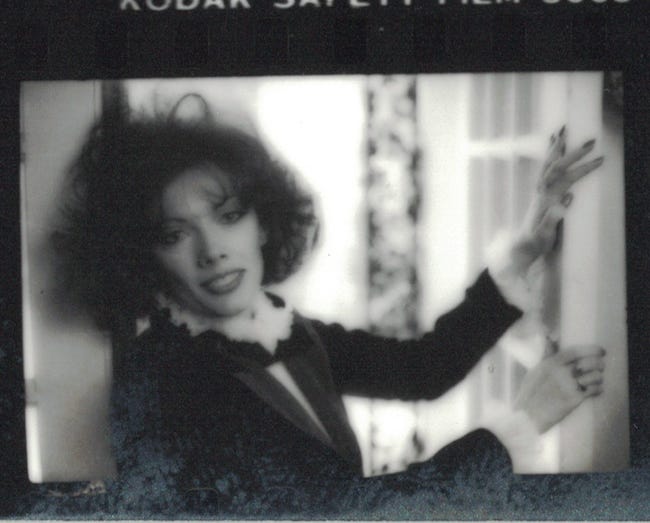
Reba’s appeal went much deeper than the imaging on the covers, however. She was amassing a diverse audience that found deep resonance with her songs about self-acceptance, self-discovery and a relationship with God rooted in love, not wrath. “We work on the basis that God is love,” she told The Tennessean in 1979. “If a song talks about love—the pure love between a man and a woman or a mother and her child—to me, that’s gospel.” Reba’s vision to write of the deepest meaning of abundant life meant living a fully integrated life. “I want to talk to those who haven’t heard about Jesus. But I want to talk about love too. It doesn’t hurt for me to perform love songs. That is sacred too,” she remarked at the Billboard Gospel Conference.
The importance of imagination was always emphasized, with songs like “The Lady is a Child,” “Tomorrowland,” and “Enchanting Isle of the Sun” that, on one hand, humanized the spiritual experience, but also provided the listener with the opportunity to expand how their spiritual reality could be relayed in language that people outside of the church might understand. That kind of songwriting paired with Reba’s stratospheric vocals complimented by a musical foundation provided by some of Nashville’s and Los Angeles’ finest session players made critics outside of the Christian market take notice. Multiple industry publications noted the potential for her in the secular market and wondered if she’d be the first to break contemporary Christian music out of its bubble and into the mainstream as a commercially viable form of expression.
When Reba took to the road after leaving The Rambos in 1978, she joined forces with Found Free, a group that was also signed to Greentree Records, the contemporary imprint of The Benson Company, comprised of a handful of innovative young people, including a seventeen-year-old Rebecca Ed (later of Bash N The Code and an artist in her own right in the late 80s with her husband as Greg and Rebecca Sparks). Found Free toured with Reba and served as both opening act and as Reba’s backing band as she toured colleges, small theaters and even some small live music venues like Nashville’s famous Exit In. Her concerts became events. She’d begun incorporating elements of theater into her show, dramatizing the songs with monologues in addition to lighting and effects. The band was a perfect pairing with Reba, enhancing not only her music, but her imaging. “We were East Coasters. There’s just an edgier approach to fashion and hair and make up,” says Rebecca. Rebecca, her brother David, and his wife were all on the road with Found Free, and frequently found themselves in Reba’s room selecting stage clothes and doing her hair and make-up (David would style Reba’s The Prodigal and can be seen doing Reba’s hair in the album’s booklet). “Found Free was controversial in our own right,” Rebecca points out. “We were heartily invited to not continue our concerts on a regular basis because we did not look like church people.”
Reba’s 1979 divorce, however, further threatened what she had built. To this day, there remains a tremendous double standard for women in the Christian world when it comes to divorce. While the next generation would watch several of Reba’s contemporaries like Sandi Patty and Amy Grant endure public divorces as the eighties turned into the nineties, Reba's divorce occurred while Sandi and Amy’s careers were just beginning. Some of her male counterparts in CCM had experienced divorces, remarried, and gone on with their ministries, but Reba was essentially, in 2021 language, cancelled. Promotion was halted on her 1979 album, The Prodigal...According to Reba which had just been released and the production budget for her final album owed to The Benson Company, Dreamin’, had been slashed, hindering her ability to match the high production standard she had established. Her concert bookings were cancelled and one major Christian television network told her she could never appear on their programming again.
Ralph Carmichael, president of Light Records, however, recognized the weight of her talent. As she was wrapping production on Dreamin’, she signed as a writer and artist with the West Coast-based label, home to her mentor/friend Andraé Crouch as well as The Hawkins Family and the Resurrection Band, a hard rock act blazing their own unique path. In the late summer of 1980, The Lord’s Prayer, a project she’d co-written with her frequent collaborator Dony McGuire, would be released by Light. A musical of sorts, The Lord’s Prayer featured herself and Dony, along with Crouch, Walter and Tramaine Hawkins, The Archers, B.J. Thomas and Cynthia Clawson, in a modernized, expanded exploration of the prayer that passed through every musical genre: classical, adult contemporary, disco, soul, gospel and pop. At the end of the year, she completed and released her first solo project for Light, Confessions, which articulated the heartache and triumph of, in her personal manager Judy Gossett’s words, her experience “on the back side of the desert.”
As Confessions was released and the controversy of her divorce was beginning to settle, however, she married Dony McGuire, which only reignited the fire that had just begun to subside. One radio announcer told Billboard that they’d quit playing her albums upon the news of her remarriage.
“As a divorced woman who is remarried, I’ve had some heavy criticism leveled at me from people who didn’t even know me. One disc jockey in Arkansas called me, and told me that I ought to be ashamed of myself and said that he wasn’t playing my music. I asked him to read me his top 10 playlist, in which I pointed out that several of his station’s most popular gospel artists were once divorced and remarried, some three and four times. To say the least, he was amazed,” Reba wrote in an op-ed for Contemporary Christian Music.
In the midst of this tumult, The Lord’s Prayer received a Grammy nomination for Best Gospel Performance, Contemporary or Inspirational and the cast of performers performed on the Grammy telecast in February of 1981, receiving an overwhelming standing ovation. They would win the award moments after their performance. But a Grammy did not quell the discontent. Shortly after the Grammys, Reba and her band were in performance in Texas and a large group of concert attendees began screaming insults at Reba as she performed, interrupting and, ultimately, ending her set. “I couldn’t get them to stop,” Reba says. “They kept yelling ‘We don’t want a whore up on that stage.’ I’ll never forget that. I was broken enough without somebody saying that. I remember going off stage and falling into [my manager] Judy Gossett’s arms. It was hell. I honestly think some of those people would have [beaten me] if they could have gotten to me.” Reba’s mother, Dottie, would recall in a television interview, years later, her daughter returning home from the concert “broken out [in hives] from her waist to her head, going through depression. These were supposed to be spirit-filled Christians!”
“I didn’t realize the emotional toll that took on me,” Reba says. “We didn’t have language for things like post traumatic stress disorder (PTSD) then, with which I’ve since been diagnosed. Had I known, I might have moved forward very differently.”
It’s hard to fathom that just a few months after this experience, Reba would get on stage again in front of 10,000 people to record the album that would become known as Lady Live. Dony McGuire, who produced the album, recalls, “Light was wanting a new record on Reba pretty quickly after we’d won the Grammy. We’d had a pretty decent budget on Confessions. We went to Light with the idea of doing a live record on Reba because the budget wouldn’t have to be as large as a studio project and we threw my Inspiration project [a solo album] into the mix, taking a little bit of her budget production-wise to get them to agree to do a project on me.”
They went away for two weeks to a beach house in Oxnard, California that Light artists utilized to write, away from the day-to-day grind of their normal lives. There, they wrote new songs specifically for the live album. “He Gave Me Music” and “Nothing Can Separate Me” were two of the more pop-oriented tunes that they composed, but the events of the Texas concert were still on Reba’s mind. “Something To Think About” was born at the beach house as she contemplated her journey of the last year and a half:
Lots of praises for the sunshine
Not much talk about the rain
Hide the truth behind a smile
If they ask, show ’em you’re doing fine
Can’t let them know you’ve got some pain
They say the whole world loves a winner
No one applauds you when you’re down
They’re convinced just the strong survive
Stabbed their wounded with their judging knives
’Cause after all the hurtin’ must have sinned
Well it’s something to think about anyway
The same week she began the lyric for “Wounded Soldier” as she contemplated the experience in Texas. The song would first be recorded in 1983 by Debby Boone, then on the first Rambo/McGuire album, The Bride, in 1984 and covered in 1991 by Helen Baylor on her debut album, Highly Recommended.
The personnel for Lady Live came together from various aspects of Reba’s musical history. Guitarist Hadley Hockensmith and keyboardist Harlan Rogers had been founding members of the band Sonlight, which had toured with Reba when she was promoting her 1972 album Resurrection, They’d backed her at Explo ’72 and were a part of The Disciples during her time on the road with Andraé Crouch.
Larrie Londin, a session musician who’d played drums on recordings by everyone from Elvis Presley to Barbara Mandrell to Olivia Newton John, was a mainstay in Reba’s recording career, having played on every album of hers since 1976. Abraham Laboriel was another in-demand session musician in Los Angeles who had played on albums for everyone from Henry Mancini to Barbra Streisand to Keith Green. He’d first worked with Reba on The Prodigal...According to Reba. New to the mix (and mistakenly not credited on the album’s liner notes) was Alex Acuña on percussion, who Dony had first worked with when he was producing The Archers’ Spreadin’ Like Wildfire album earlier in the year.
Rebecca Ed, who left Found Free in late 1980, had become a part of Reba’s touring unit once again. She was called to provide backing vocals on Lady Live along with Shelley and Kelley Landreth, sisters from Texas who had also done backing work with Reba at various dates. Dony recalls three days of rehearsals leading up to the recording which took place at the Anaheim Convention Center. The Imperials opened the concert in what would be one of their first performances with Paul Smith as lead vocalist. As opening acts at live recordings tend to do, they aided in helping the sound technicians work through the kinks to ensure a smooth set for the headliner. “I was backstage praying like a cloistered nun,” Reba remembers with a laugh.
Reba’s set was introduced by John Styll, founder and publisher of Contemporary Christian Music magazine, quoted in his own publication as saying, “Reba is one of the best singers I’ve ever heard.” His introduction begins the album along with “He Gave Me Music,” which CCM wrote “sets the pulse throughout the whole LP.”
“I knew at that moment it was legendary,” Rebecca Sparks remembers. “When you work with that caliber of musicians who were so kind and generous of heart, with such a sweet spirit working together and they just loved the music...when you love the person you’re working for and you love the songs, it’s great harmony, great energy happening, when the crowd is for you, and you get all of that combined, it’s just amazing!”
The aforementioned new compositions are offset with staples from Reba’s catalog including “He Never Turned His Back On Me” and “Because of Whose I Am” from Confessions and a medley of her hits from the Greentree years. The album flows so seamlessly it’s easy to think that, like many of today’s edited and overdubbed live albums, that there’s studio magic creating the illusion of an unedited performance, but Dony McGuire says, “We did not cut anything a second time. What that record is is a performance—from the introduction to the moment we walked off stage—and, to me, that is one of the things that makes that record so unique. I can’t believe we did that and didn’t do a thing to it [in the studio].”
It’s her cover of Carole King’s “You’ve Got a Friend,” that serves as the bridge to church. Her power as an interpreter shines as she, first, grounds the song in its writer’s intention of the importance of human connection—but as she moves the song along, the meaning expands to a transcendent spiritual connection as well. As the background vocalists chant, “you’ve got a friend,” Reba responds with conviction, “It’s Jesus!” In an interview with the Santa Cruz Sentinel shortly after the Lady Live recording, she said,
“I’ve always been impressed that my mission was to bring water to the desert, not to the sea. There are some people who are ministers to the church, teachers, and that’s necessary so we all can grow. But I’ve always felt I wanted to reach people who don’t know God, to tell them that God loves them and cares about them.”
“You’ve Got a Friend” accomplishes just that.
The album displays the ways Reba’s repertoire had grown to accommodate the diverse settings she was performing in, which had expanded to venues like the Queen Elizabeth 2 ocean liner and concerts in Las Vegas.
“I didn’t change when I went to non-gospel venues. We took the gospel with us wherever we went. As long as I was authentic, people accepted what we gave. Audiences are smart. They know when something is true. All I had to do was be real. I never had challenges with them—I only had challenges with religious folks. People know when you love them and I think that’s what challenges religious people.”
The album marked the end of an era in Reba’s life and career. It remains her last solo album. Her music post-1984, recorded in partnership with Dony as Rambo/McGuire, focused exclusively on church ministry, without much engagement with the music industry.
“I was so afraid of hurting Christian people and now I realize that I missed opportunities. I don’t live in grief and I don’t sit around thinking about it, but I’m saying if the truth were told, I would have made some different choices. I turned down a few Broadway shows, I didn’t do an album with Donna Summer that she asked me to do. If I could rewind the tape, I would have just continued on my path.”
Lady Live also planted seeds for the future. In the audience was a young aspiring singer in her first year of college, living in San Diego named Karen Harding. “I said ‘I am going to be in that building if it’s the last seat left!’ She was like the Lady Gaga of gospel music back then because she was so different.” Karen met Reba years later and when she landed a deal with Daywind Records, she asked Reba to join her for a song. “A seed was planted in my heart all those years ago and He connected us and she sang on my project.” The two recorded “Because of Whose I Am” as a duet on Karen’s 2004 release Holding On To Faith. “She’s everything I thought. Sometimes you meet your heroes and then you’re like ‘Oh..I wish I hadn’t met them.’ But she’s not like that. Her love of people is so genuine. She’s real.”
She remains real. When she and Dony divorced in 2019, she shared the experience openly with her supporters on social media, relaying the importance of self-care, stressing the necessity of tending to one’s mental health particularly in the wake of unexpected life changes and trauma, and recommending books that were and are helping her heal. She has also embarked on a new musical venture with her daughter Destiny. They’re nearing completion on a new album, a joint venture, titled Rambo Women, that, in Destiny’s words, “celebrates the heritage of bravery and resilience that we come from.” Producer Joel Khouri says, “It’s amazing to work with a woman that at this point in her career still chooses to push boundaries and take risks.”
Her solo catalog is finally being re-examined after being out of print for nearly thirty-five years. Lady Live was released digitally for the first time on Friday, July 30th. Lady was re-released in 2019 and received massive response with musical descendants like Margaret Becker, Kim Hill, Kim Boyce and Ty Herndon all speaking to the impact her work made on a generation of music makers. She remains committed to communicating an ethic of love in song. “I’m still there. It’s a different time but, even as a writer now, artists still say to me, ‘You just don’t talk about sin enough,’ but I believe we are supposed to have a message of love. It’s good news, it’s peace and it’s redemption.”
With special thanks to Reba, Ron Fairchild, Fred Satterfield, Dony McGuire, Rebecca Ed Sparks, Karen Harding, Joel Khouri and Destiny Rambo Khouri for participating in interviews for this article.
To subscribe to my weekly newsletter, click here.




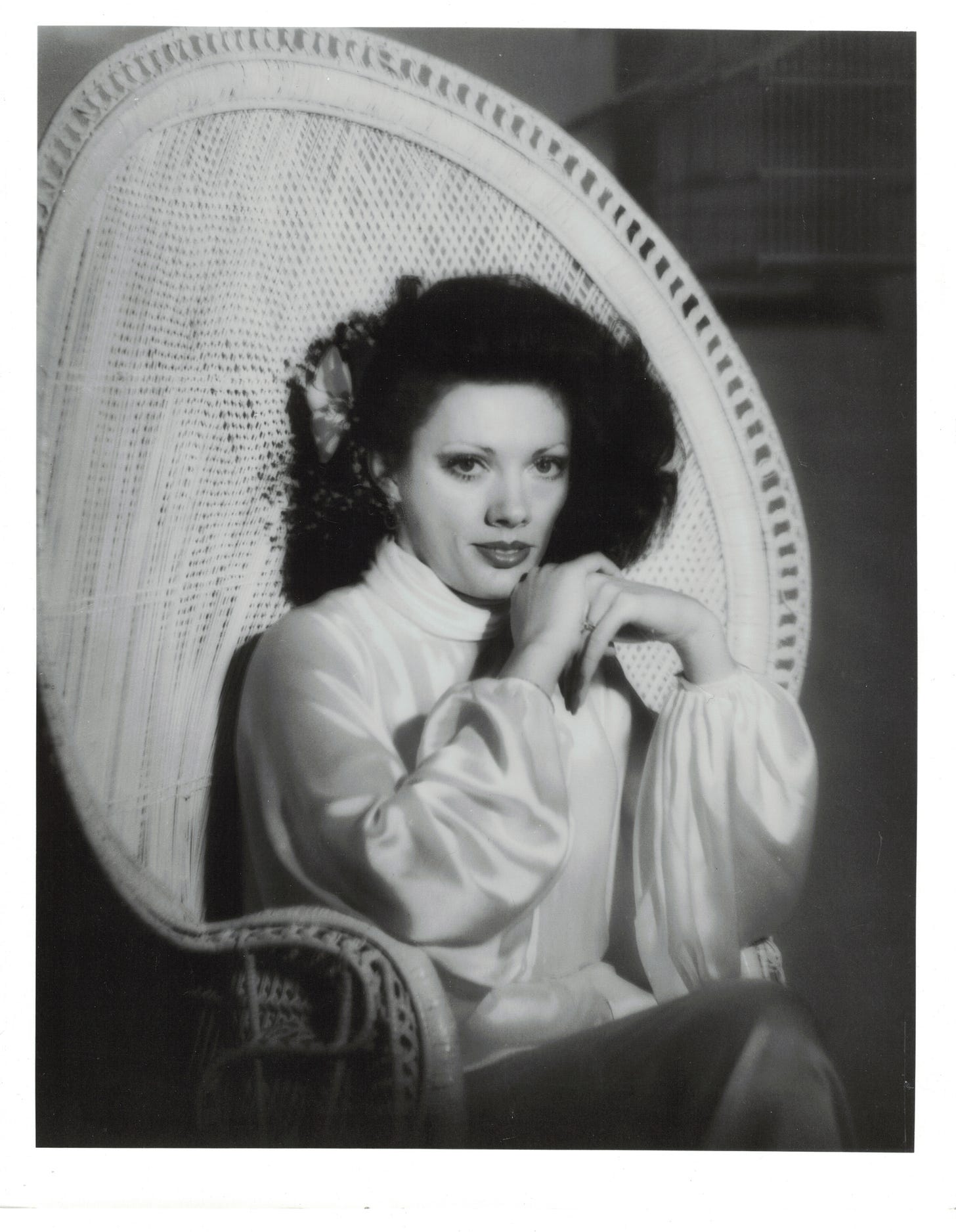

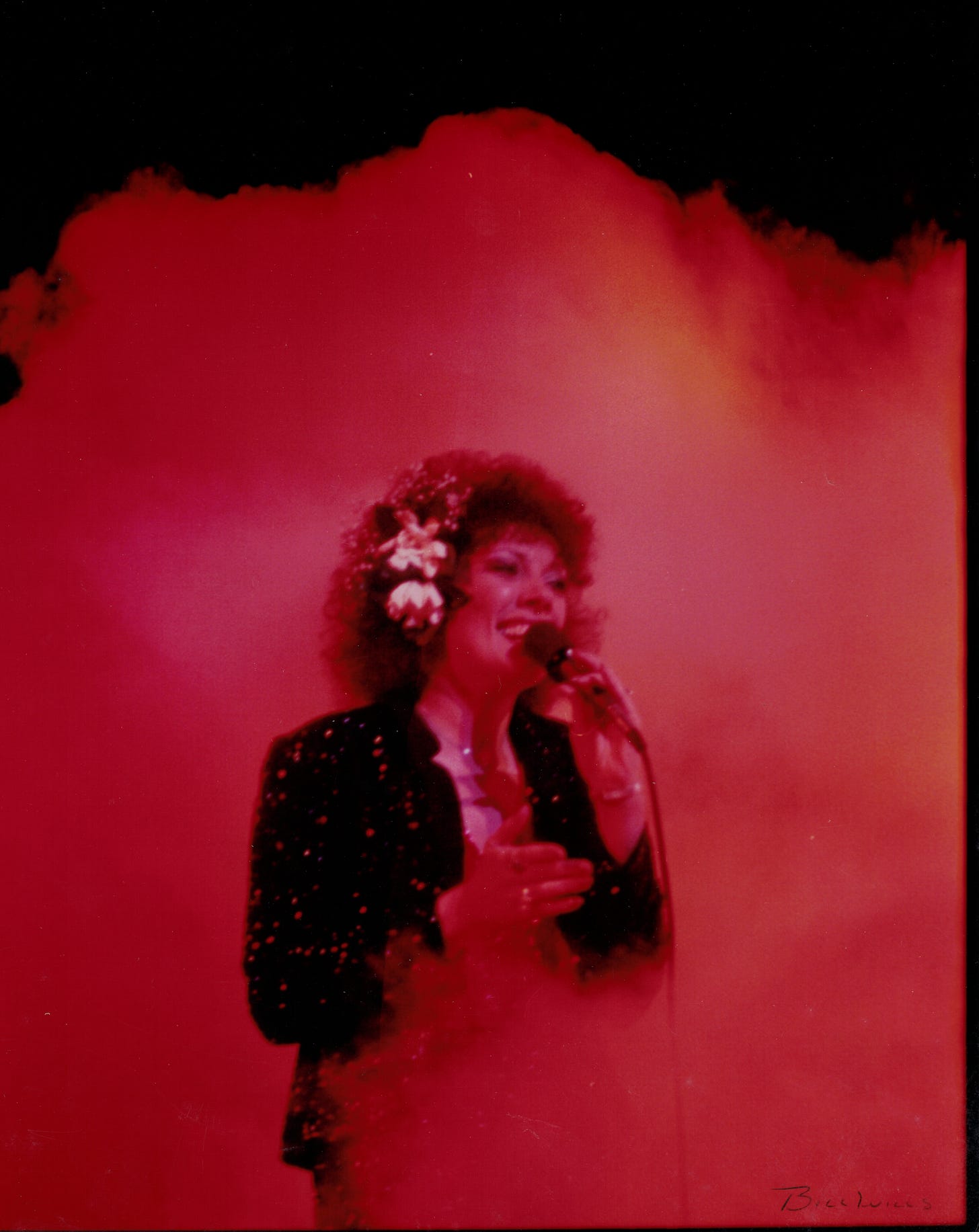
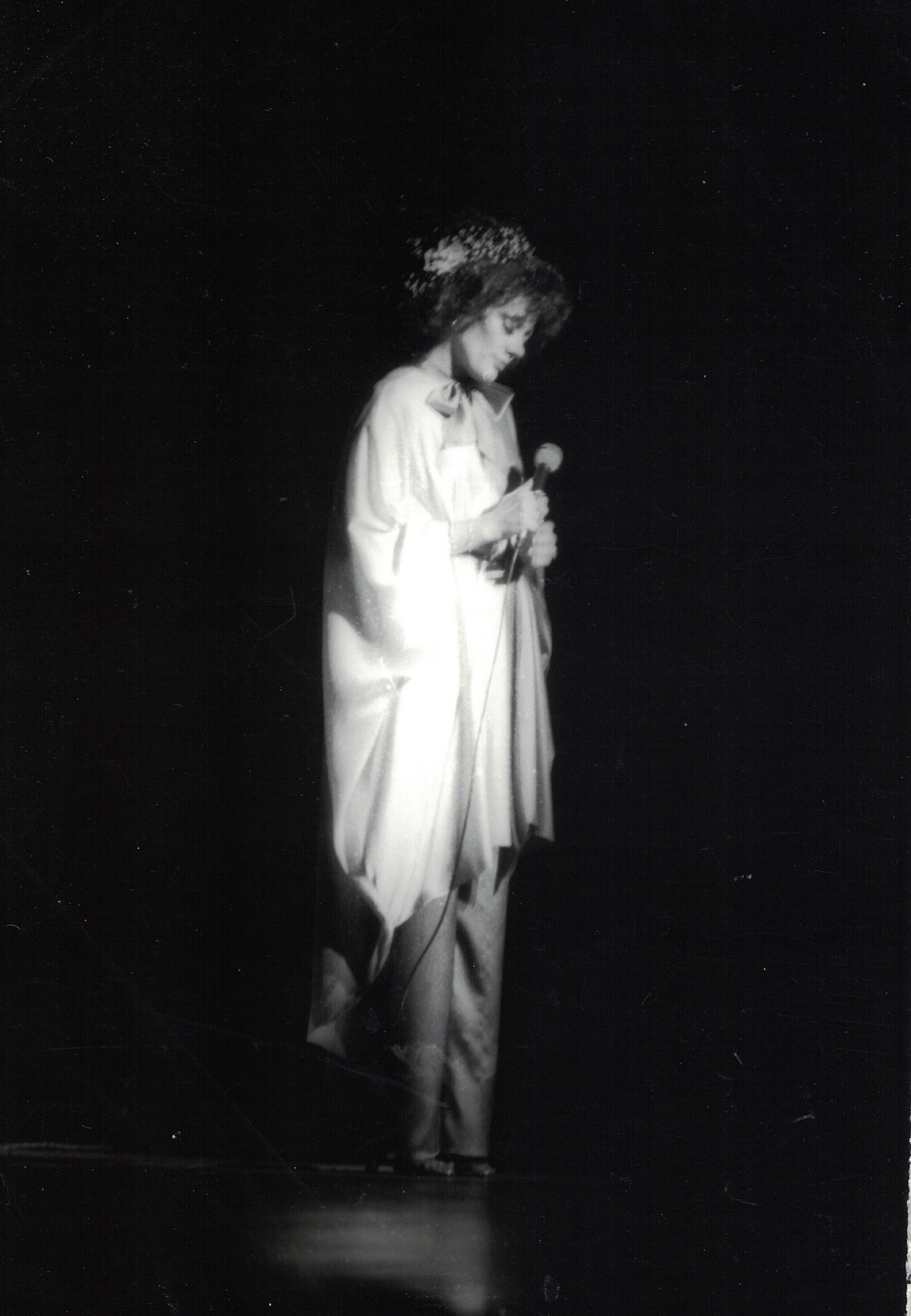

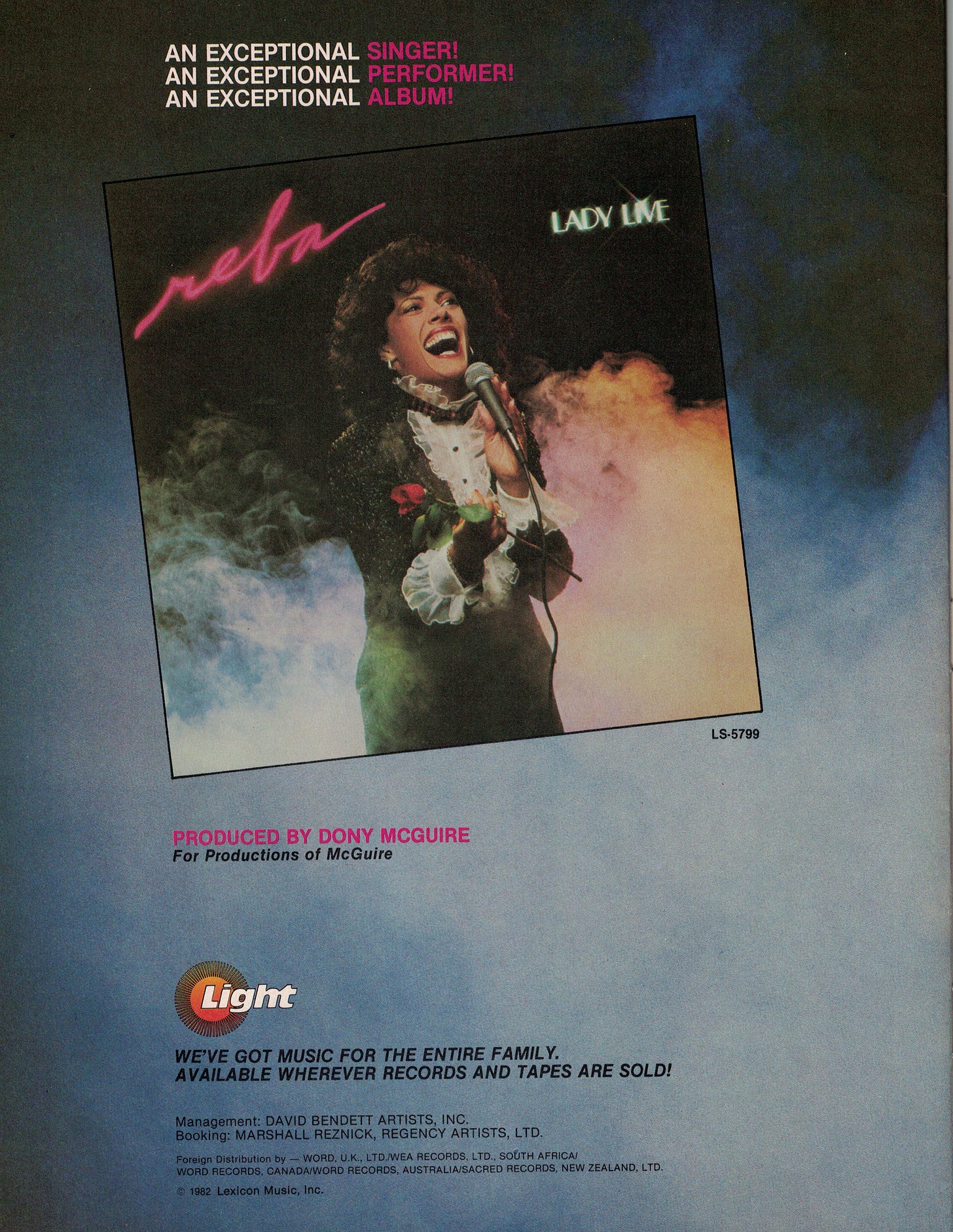
Wonderful writing Tim... just reorganizing my music archives! Miss those days....love Reba!
Thank you for this in depth history of Reba. I have always had a special place in my heart for her as well as Dottie and Buck Rambo. But it is Reba's solo projects I loved the most. Every single album she released as a solo artist remain just as relevant today as yesterday. My wish is that Reba will release another classic to go along with the perfection of LADY, THE LADY IS A CHILD, THE PRODIGAL, DREAMIN', LADY LIVE and my personal favorite CONFESSIONS. Reba you are loved. And the world is waiting for you to once again blow our minds. 🎼